Diabetes, Endocrinology and Metabolism Fellowship Program
The Diabetes, Endocrinology and Metabolism Fellowship at the University of Minnesota is a two-year program designed to provide the advanced training and experience necessary for an endocrinology consultant. Since 1984 the fellowship program has trained over 70 fellows, who have gone on to careers as academic endocrinologists, clinical endocrinologists and basic and clinical researchers.
There is an option for a third research-training year for fellows with a demonstrated interest and commitment to an academic endocrinology career.
The goals of the fellowship program are:
- To learn basic and advanced endocrine biochemistry, physiology and pathophysiology as a basis for understanding endocrine disease.
- To accumulate a critical mass of fundamental clinical knowledge and practical clinical and laboratory approaches for the diagnosis, management and prevention of endocrine disorders.
- To acquire the technical skills required of a consultant in endocrinology, diabetes and metabolism.
- To acquire knowledge and skills necessary for providing cost-effective, ethical and humanistic care.
- To acquire skills in design and performance of hypothesis-driven endocrine research, and to participate in such research or equivalent scholarly activity.
The fellowship program is accredited by the Accreditation Council of Graduate and Medical Education ACGME.
Eligibility
To be eligible for consideration, applicants must have:
- Completion or anticipated completion of an ACGME-accredited (US) Internal Medicine or Med-Peds residency program prior to fellowship
- US citizenship, permanent resident status, or a J-1 visa.
Visa Sponsorship: The J-1 alien physician visa sponsored by ECFMG is the preferred visa status for foreign national trainees in all UMN graduate medical education programs; therefore, the Endocrine Fellowship Program sponsors only J-1 visas. We do not sponsor H-1B visas. More information. - Passed USMLE Steps I and II (and III if completed)
Apply
Visit ERAS to submit an Endocrinology Fellowship application. The ERAS application must include the following:
- Personal statement that includes your background, education and experience, long-term goals, and areas of interest
- Current curriculum vitae
- Medical school transcript
- Three letters of recommendation
- A valid ECFMG certificate (if you graduated from a medical school outside the United States or Canada). Graduates who are not United States Citizens or permanent residents must obtain a J-1 Visa from the Education Commission on Foreign Medical Graduates (ECFMG) to qualify for a fellowship at the University of Minnesota
- USMLE Transcript
- Photo
Interviews
Invitations for interviews and self-scheduling will be offered through ERAS. If you are invited to interview, you will be asked to visit the program for a personal interview with the program director, associate program director, and selected faculty. No interview will be granted without a completed application.
Three fellowships are offered each year.
Members of underrepresented backgrounds in medicine minority groups are encouraged to apply. The University of Minnesota is committed to the policy that all persons shall have equal access to its programs, facilities, and employment without regard to race, color, creed, religion, national origin, sex, age, marital status, disability, public assistance status, veteran status, or sexual orientation.
Clinical Training
Clinical training takes place at our three teaching hospitals - University of Minnesota Medical Center - Fairview (UMMC), Minneapolis VA Health Care System (MVAHCS), and Hennepin Healthcare. Each hospital has its own unique patient mix ensuring that fellows gain experience in the full spectrum of endocrine disease.
Clinical rotations typically occur in 2 month blocks. Approximately 12-18 months of the fellowship period is spent on clinical rotations. Clinical training occurs via:
Outpatient Clinics
University of Minnesota Medical Center - Fairview (UMMC)
Our primary teaching hospital for the University of Minnesota Medical School
- General endocrinology and diabetes clinic
- Weight management clinic
- Pituitary clinic
Minneapolis Veterans Affairs Health Care System (MVAHCS)
A large referral-based hospital serving the upper Midwest veteran population
- General endocrinology/metabolic clinic
- Diabetes clinic
- Thyroid clinic
- Osteoporosis and Mineral Disorders clinic
- Obesity Clinic
- Insulin Pump Clinic
Hennepin Healthcare (HHC)
Serving a large predominantly urban population
- General endocrinology and diabetes clinic
- Bone and Stone Clinic
Inpatient Consult Services
- UMMC – Endocrine in-patient consult service
- UMMC - Diabetes in-patient consult service
- MVAHCS – Endocrine and diabetes in-patient consult service
- HHC – Endocrine and diabetes in-patient consult service
Fellows Continuity Clinic
- One-half day each week throughout fellowship
Teaching Conferences
- Weekly core curriculum conference
- Weekly clinical conference
- Weekly basic science journal club
- Weekly endocrine city wide conference
- Monthly clinical journal club
- Monthly cytology/pathology conference
- Nutrition Core Curriculum
Research Experience
Fellows spend at least 6 months of their 24 month fellowship period in research activity. Fellows may apply for an additional 12 months of research experience after their second year of fellowship. Research opportunities are available at each of the 3 teaching hospitals and can include basic laboratory research, clinical research and other scholarly activity such as retrospective chart reviews or case reports. Research experience can be supported by an NIH Institutional Research Training Grant which the Endocrinology division has held since 1977.
Examples of research and scholarly activity by recent fellows include:
- Thyroid cancer genetics using random mutagenesis model
- Randomized trial of NPH insulin use in hospitalized patients with steroid induced hyperglycemia
- Effects of exercise training on muscle lipid metabolism in sedentary adults
- Outcomes research - exenatide add on therapy to insulin; incidental adrenal nodules - incidence and evaluation outcomes
Facilities for research at the University of Minnesota include the NIH funded Clinical and Translational Sciences Institute which provides facilities and other support for clinical and translational research, the Stem Cell Institute, the Center for Magnetic Resonance Research, the Masonic Cancer Center and at the VAMC, the Special Diagnostics and Treatment Unit. Basic science research opportunities are also available through the laboratories of faculty in the basic science departments of the Medical School.
Division faculty have a wide range of basic and clinical research interests. The University of Minnesota endocrine division has participated in many recent NIH and VA funded multi-center clinical trials including the DCCT/EDIC trial, ACCORD, BARI2D, Look AHEAD, GRADE and the VADT.
Program Resources
First Year Fellows
Filip Jovanovic, MD
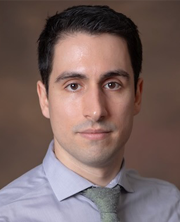
Hometown: Krusevac, Serbia
Medical School: University of Belgrade Faculty of Medicine, Serbia
Residency: Internal Medicine, Merit Health Wesley, Hattiesburg, MS
Professional Interests: diabetes mellitus, insulin pumps
Favorite things to do: traveling, city-tourism, exploring new cultures, swimming
Muhammed Kizilgul, MD
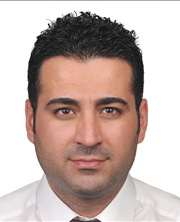
Hometown: Cizre, Turkey
Medical School: Hacettepe Üniversitesi Tıp Fakültesi, Turkey
Residency: Internal Medicine, Medeniyet University Goztepe Training and Research Hospital, Turkey
Professional Interests: Thyroid disorders, acromegaly, hyperparathyroidism, islet cell transplantation
Favorite Things to do: Soccer, cooking, swimming, reading, traveling
Giovanna Klimovitsky, MD
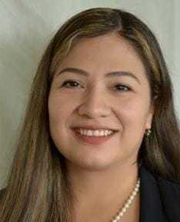
Hometown: Lima, Peru
Medical School: La Facultad de Medicina San Fernando de la Universidad Nacional Mayor de San Marcos, Peru
Residency: Internal Medicine, Wyckoff Heights Medical Center, Brooklyn, NY
Professional Interests: particular focus on obesity and type 2 diabetes
Favorite Things to do: mushroom picking, hiking, foraging, fishing and spending time with family
Second Year Fellows
Jaspreet Batth, MBBS
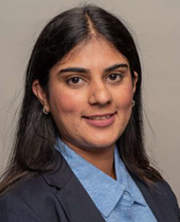
Hometown: Brampton, Ontario, Canada
Medical School: Guru Gobind Singh Medical College
Residency: Central Michigan University College of Medicine
Professional Interests: Thyroid disorders, bone metabolism and endocrine oncology.
Favorite Things to do: Going on walks and long drives with my family, biking, and reading history books
Aditya Chauhan, MBBS
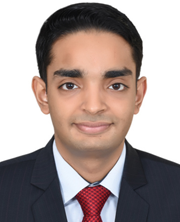
Hometown: Dehradun, Uttarakhand, India
Medical School: Himalayan Institute of Medical Sciences
Residency: Brooklyn Hospital Center
Professional Interests: Endocrine oncology
Favorite Things to do: Trying new cuisines, cooking, and playing cricket
Raúl Herrera Peña, MC
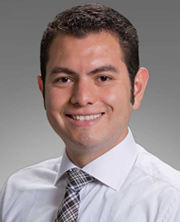
Hometown: Guatemala
Medical School: Universidad Francisco Marroquín Facultad de Medicina
Residency: Houston Methodist Hospital
Professional Interests: Endocrine Neoplasia, Adrenal Disease, Transition from Pediatric to Adult
Favorite Things to do: Outdoor recreation (cycling, skiing), music
Recent Graduates
Ammar Ahmed, MBBS
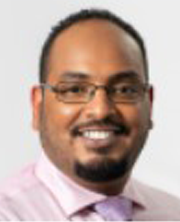
Hometown: Khartoum- Sudan
Medical School: University of Khartoum - Sudan
Residency: Rochester regional health / Unity hospital - Rochester NY
Professional Interests: Type 2 diabetes mellitus management and pituitary tumors.
Favorite Things to do: cooking and swimming
Sreekant Avula, MBBS
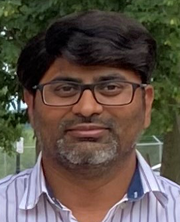
Hometown: Kurnool, Andhra Pradesh, INDIA.
Medical School: Mysore Medical College and Research Institute, Mysore, Karnataka, India.
Residency: The Wright Center for Graduate Medical Education, Scranton, Pennsylvania.
Professional Interests: Endocrine Oncology, Neuroendocrine tumors, Diabetes.
Favorite Things to do: Painting, Sketching, Going for Long drives and spending time with Family
Michael Salim, MD
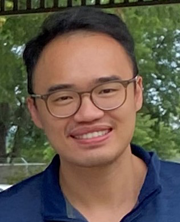
Hometown: Samarinda, Indonesia
Medical School: Universitas Katolik Indonesia Atma Jaya
Residency: Sinai Hospital Chicago
Professional Interests: Diabetes, Obesity
Favorite Things to do: playing the guitar, ping pong, badminton
Program Director
Lynn Burmeister, MD
Professor of Medicine
Contact Us
Fellowship Coordinator
endofelo@umn.edu